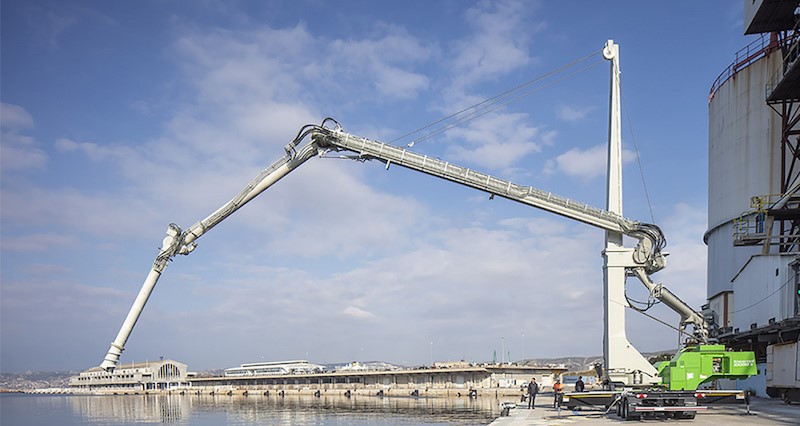Alumina ship unloader installed by Siwertell at Trimet France
Trimet France, a subsidiary of Germany-based Trimet Aluminium SE, has leased its older ship unloading device, replacing it with a high-tech Siwertell road-mobile unloader. This will enhance the company’s alumina unloading capacity along the regional ports, lessening the time each vessel spends in transition. This new Siwertell 10 000 S next-generation road-mobile unloader is now active, and its digital and remote control features have helped surpass the estimated earlier capacity.

Trimet France can be allocated as one of the largest aluminium producers in Germany and France, with the company’s alumina import facilities in Marseille, France, receiving the highest number of import vessels from Greece or Ireland. The highest volume of an inbound ship is 14,000 gross tonnage, whereas the lowest is 6,000 gross tonnage.
Trimet’s alumina used to travel all the way through a pipeline system that connected silos located on the quay. From there, it was loaded in rail wagons and transferred to the company’s decades-old aluminium producing facility in Saint-Jean-de-Maurienne, South-East France.
To replace its shattered old-age system that has been inactive for an extended period, Trimet conducted a practice run with a second-hand Siwertell road-mobile unloader bound to the company with a twenty-month lease. But soon, Trimet became extremely satisfied with the increased intake capacity of the system and ordered a new Siwertell 10 000 S next-generation road-mobile unloader of its own.
The Siwertell 10 000 S next-generation road-mobile unloader has an extended capacity of 130t/h, unloading vessels up to 10,000 dwt. The machine has a connected chute that can gulp various sizes suitable for clasping an equipment mouth. Moreover, the portable ship unloader can be folded and reinstalled within an hour, something that has intrigued Trimet for experimentation.
The ship unloader follows rigid environmental rules regarding noise, dust and exhaust emissions. In 2022, the estimated collection through the ports exceeded 50,000 mt, and the majority was due to the new system. Another concern for the company was the waiting time of vessels before being unloaded added to the actual unloading time were surmounting to be real time endangering factors for good business.
The new unloading device is advanced with remote control technology and an Industrial Internet of Things (IIoT) device, Compulab, that allows intense monitoring, service-aid and troubleshooting through secure-remote access.
After being fully active, Trimet gave some reviews about the unloader, the first being that its remote control is extremely useful. With its exceptional capacity and mobility, the device’s conveying arm lets Trimet operate from each hold and aids in achieving swift vessel turnarounds. Next, it has been reported that operators are allowed to visually determine the course of unloading a material, resulting in bigger goals of a 150t/h unloading rate.
The newly installed unloader is an electronically manoeuvred machine that omits the chances of heavy emissions and provides perfectly smooth, dust-free alumina handling with minimum opportunities for material loss or degradation. The entire function also requires very little energy to run, pushing the company towards sustainability.
This news is also available on our App 'AlCircle News' Android | iOS















.png/0/0)







